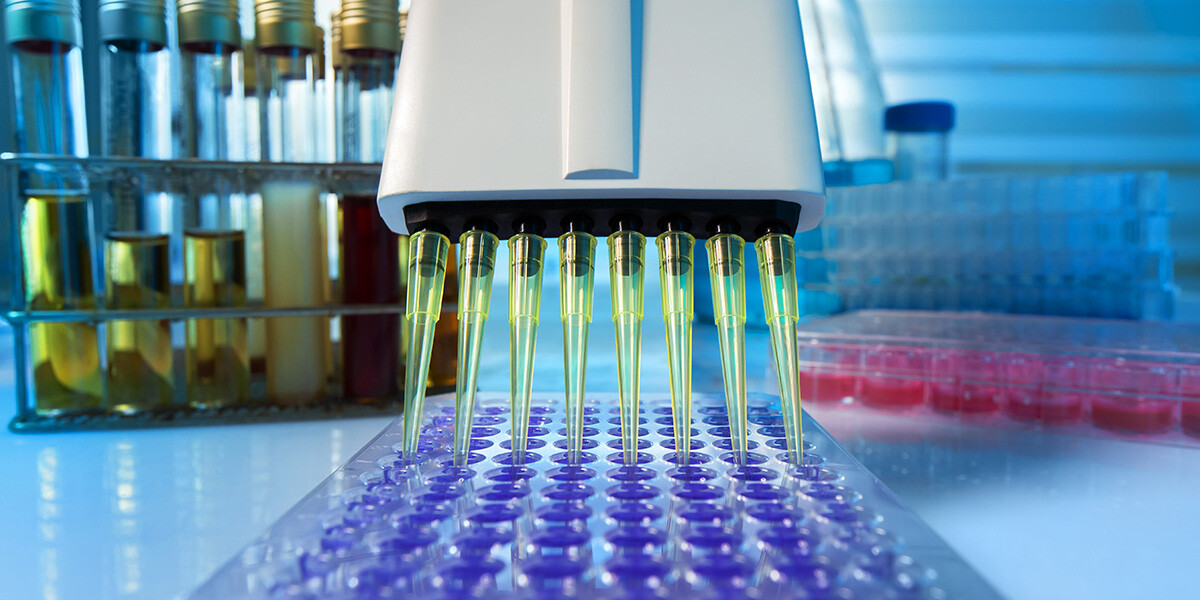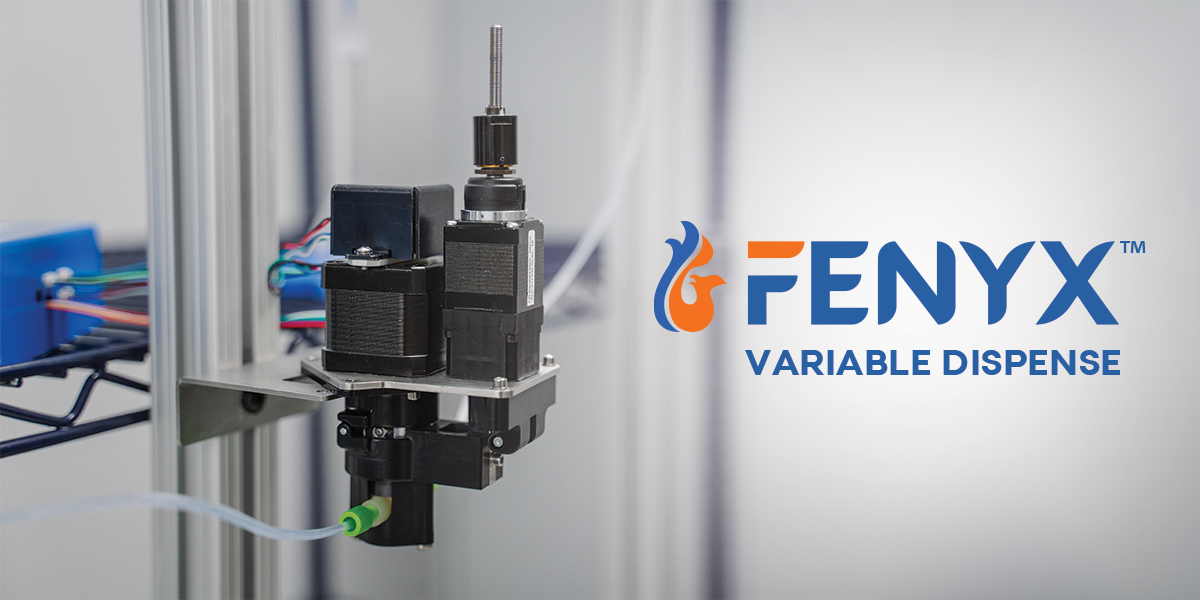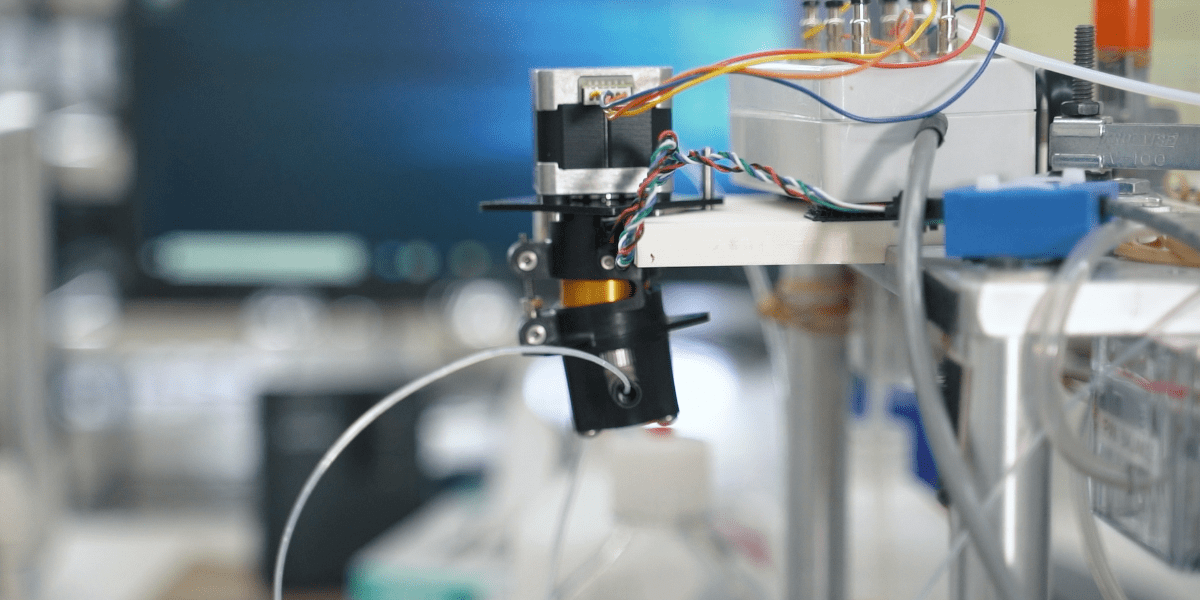1 min read
Selecting a Pump for DNA Application
Key Takeaways: For synthetic DNA synthesis pump selection, engineers must consider fluid compatibility, flow rate precision, and pressure...
2 min read
Colin Rademacher : Updated on October 28, 2025

As a mechanical engineer, selecting a pump for a Polymerase Chain Reaction (PCR) machine requires a comprehensive evaluation of the pump's technical requirements and chemical compatibility with the reagents used.
PCR is a technique used in molecular biology to amplify small segments of DNA or RNA. In Droplet Digital PCR (ddPCR) machines, this process is taken a step further by partitioning the sample into thousands of individual droplets, each of which undergoes amplification. This allows for more precise quantification of the target nucleic acid.
The reagents used in ddPCR, such as Taq polymerase, fluorescent probes, and PCR buffers are sensitive to temperature and shear stress. Therefore, the pump used in these machines needs to provide precise flow rates and pressure to maintain optimal performance. A piston pump is an ideal choice for this application due to its precise flow control and low pulsation, reducing the possibility of shear stress and temperature variation, which could compromise the PCR reaction.
However, selecting a pump based solely on its mechanical performance isn't enough. The pump's lifespan, which can be influenced by operating conditions, frequency of use, and maintenance practices, is another important factor for consideration. A well-designed piston pump, when properly cared for, can provide reliable service for years.
Moreover, the pump's chemical compatibility with the reagents used in the PCR reaction is a crucial factor. The materials used in the pump should be resistant to the chemicals and solvents present in the reagents to prevent contamination and degradation of the pump components. This ensures the quality and accuracy of the PCR results are not compromised.
The pump should be designed to eliminate dead volume and prevent cross-contamination. This is vital for maintaining the consistency and reproducibility of the PCR reaction, as even minor inconsistencies can lead to significant errors in the final results.
In conclusion, selecting a pump for a ddPCR machine is a task that requires a comprehensive evaluation of the pump's technical specifications, lifespan, and chemical compatibility with the reagents used. Fluid Metering’s FENYX® Variable Dispense Pump would be an ideal choice for any PCR application. Designed for highly precise and accurate dispensing, FENYX™ is capable of handling a wide range of volumes, making it flexible for various manufacturing requirements. It offers low pulsation and customizable options to enhance material and chemical compatibility to reduce the risk of adverse reactions. With the right pump, you can ensure the reliability and accuracy of your PCR results and contribute to advancements in molecular biology.
At Fluid Metering, we understand the complexities involved in selecting a pump for an ISO:13485 device in a ddPCR machine. Our valveless piston pumps are designed with these considerations in mind, offering precise flow control, low pulsation, and chemical compatibility. Furthermore, our team of experts is available to provide guidance and support, helping you choose the pump that best fits your specific needs.
.jpg)
1 min read
Key Takeaways: For synthetic DNA synthesis pump selection, engineers must consider fluid compatibility, flow rate precision, and pressure...

1 min read
Key Takeaways: Fluid Metering’s FENYX® variable dispense pump vs. syringe pumps delivers 10x–40x faster throughput, ±0.5% precision, and...

1 min read
Key Takeaways: Fluid Metering’s FENYX® pump for non-contact dispensing enables accurate, sterile fluid delivery under 10 µL without tip submersion...